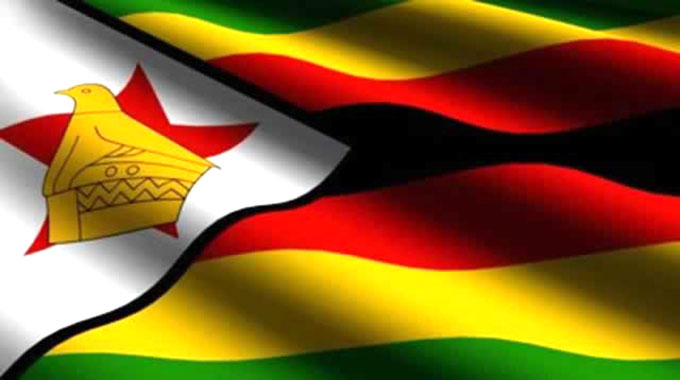‘Sanctions undermining our peace building efforts’

Geoffrey Chada
Correspondent
The sanctions against Zimbabwe are destroying the political economy of the country. The political economy refers to the distribution of political and economic power in a given society (Zimbabwe) and how that influences the direction of development and policies that bear on them.
How is economic development related?
In the international development language, peace is another name for development. In 1996, UNDP defined development as “the widening or expansion of people’s choices”. Limited choices in a community are associated with poverty and poverty is a well-known source of conflict. This means that peace and development are interdependent and mutually reinforcing. The modern challenges of poverty, hunger, diminishing natural resources nationally and internationally, water scarcity, environmental degradation due to poverty, diseases due to incapacitated public health systems, corruption due to greed and poverty, racism, political and social exclusion, ethnicity and xenophobia etc pause serious challenges to peace and create fertile ground for conflicts.
The UNDP views local governance and local development as the sources of peace and State building and social and economic recovery. These are the sectors which sanctions are trying to destroy. In 1967, Pope Paul VI emphasized that development was the name for peace. He drew the relationship between peace and development and poverty and conflict, especially violent conflict.
In what way then are sanctions undermining the peace building efforts on the NPRC in Zimbabwe?
Poverty which is caused by economic and social culture of shortages are sources of conflict. Economic and social shockers such as shortages of medicines and drugs in the public health system of the country due to sanctions are acting as triggers for violence. There is a significant relationship between economic downturns and the onset of conflict. Commodity price shockers caused by sanctions have a significant effect on the onset of conflict. Economic shocks are more likely to trigger violence when they are not accompanied by mitigation measures, which are often absent due to the impact of sanctions. The state will have challenges to pay civil servants or may need to make some fiscal adjustments by slashing subsidies on staple foods such as maize, mealie meal, flour, sugar, which can cause a rapid increase in prices of these basic goods.
Sanctions have caused aggrieved groups to assign blame on the state for the perceived economic and social exclusion. These grievances whose roots are in the sanctions may become politicised and can turn into violence. Abuse of inequality and exclusion can become fertile ground upon which grievances can be built. Many studies into the relationship between a sense of inequality and exclusion and conflict have shown how social groups can coalesce around the feeling of humiliation and perception that they are being short-changed economically. These conditions have been created by the culture of shortages in the economy, which are products of sanctions. The link between inequality and violent conflict is one of the oldest issues in political economy.
At least, since the Greek political philosopher, Aristotle, theorists have believed that economic and political discontent such as food protests, instability, and violence, depend not only on the absolute levels of economic well-being, but also on the distribution of wealth. There are two dimensions of inequality that are relevant here:
Inequality among individuals or households (vertical inequality) and inequality among groups (horizontal inequality). Sanctions have caused untold vertical and horizontal inequalities. Sanctions have caused untold horizontal inequalities. Horizontal differences are in access opportunities across culturally and regional groups. They create fertile ground for grievances across social groups.
Sanctions have caused social inequalities among our people. Social inequality can be defined, to include inequalities in access to services like education, health care and benefits related to educational and health outcomes. Education is particularly relevant given that it is strongly connected to future economic activity and well-being and plays an important role in national identity and social cohesion.
This is one of the sectors being hit hard by the sanctions. Greater inequality increases the likelihood of violent conflict and may worsen inequality. This is development in reverse, where violent conflict may deepen the problem that led to group protests in the first place. Sanctions have affected the Government’s policies to address gender equality and women’s empowerment.
The Sanctions have affected programmes whose overall objective is to mainstream gender in all sectors in order to eliminate all political, economic, and social and cultural practices that impede equality of the sexes. The policy aims to fully integrate into national sectorial plans the mainstreaming of gender and women’s issues at all development levels by the line ministries and Government institutions.
Mainstreaming women into the economy and employment creation require resources which the sanctions are denying the country. The Government could offer a variety of some support programmes that can be roughly divided into five main types. Financial assistance enterprise culture, advice and assistance, technology and management training. When it comes to promotion of women entrepreneurs, there is need to master these with the implementation strategies and budget allocations necessary to translate them into a transformation of women’s lives, including removing administrative bottlenecks to investment and to the legislation of enterprises.
Lack of resources due to sanctions has reduced women’s leadership and participation in peace building processes and in conflict resolution. It has been proven that women’s inclusion in peace building processes has a positive impact on the durability of peace agreements. Studies have shown that inclusion of women as negotiators, mediators, signatories and witnesses increases the probability of an agreement’s lasting longer.
Sanctions are putting limitations on the country’s ability to include youths in development programmes. Young people are productive workers who are at the same time peace builders. Sanctions have reduced the country’s ability to provide the youth with productive work. The high unemployment among the youth has increased the youth’s participation in conflicts. Youth exclusion in economic development is often highlighted as a key factor in violent conflicts. Empowering the youth is an essential for violence prevention and peace building.
In conclusion, it is a falsehood to claim that the sanctions are not affecting the ordinary citizens of this country. Sanctions have undermined the peace building efforts of the National Peace and Reconciliation Commission.
Commissioner Dr Geoffrey Chada is the spokesperson of the National Peace and Reconciliation Commission.









Comments